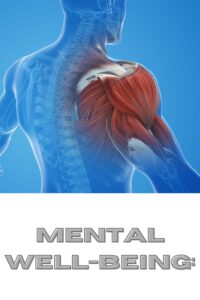The Crucial Role Of Post-Workout Recovery In Achieving Fitness Success

Introduction:
In the pursuit of fitness goals, it’s easy to get caught up in the intensity of workouts and the thrill of pushing your physical limits. However, what happens after your exercise routine is just as important as the effort you put into it. In this article, we’ll explore the significance of post-workout recovery and why it’s a critical aspect of any successful fitness journey.
1. Repair and rebuild:
After a challenging workout, your muscles undergo microscopic damage. Post-workout recovery is the phase where your body works diligently to repair and rebuild these muscle tissues. This process is essential for muscle growth, strength development, and overall fitness improvement.

Muscle Repair and Growth:
- Pros: Adequate recovery allows muscles to repair and grow, leading to increased strength and endurance.
- Cons: Inadequate recovery may result in muscle fatigue, decreased performance, and an increased risk of overuse injuries.
2. Reduction of Muscle Soreness:
Engaging in intense physical activity can lead to muscle soreness due to the accumulation of lactic acid and microscopic tears in muscle fibers. Adequate post-workout recovery, including activities like stretching and foam rolling, helps alleviate muscle soreness, allowing you to return to your next workout feeling refreshed and ready.

Reduced Soreness:
- Pros: Proper recovery techniques can alleviate muscle soreness, promoting a quicker return to training.
- Cons: Neglecting recovery may lead to prolonged soreness, impacting the ability to perform optimally in subsequent workouts.
3. Injury Prevention:
Overtraining without proper recovery increases the risk of injuries. Muscles, tendons, and ligaments need time to adapt to the stress of exercise. Insufficient recovery may lead to overuse injuries, strains, and other issues that can hinder your fitness progress.

Prevention of overtraining:
- Pros: Adequate recovery helps prevent overtraining, a condition associated with fatigue, decreased performance, and an increased risk of injuries.
- Cons: Insufficient recovery can contribute to overtraining, hindering progress, and causing burnout.
4. Restoration of Energy Levels:
During exercise, your body depletes energy stores, particularly glycogen. Post-workout nutrition and recovery facilitate the replenishment of glycogen stores, ensuring you have the energy needed for subsequent workouts. This restoration is vital for maintaining consistent performance and achieving long-term fitness goals.

Improved immune function:
- Pros: Recovery supports immune function, reducing the likelihood of illness and ensuring consistent training.
- Cons: Poor recovery practices may compromise the immune system, making individuals more susceptible to infections.
5. Immune System Support:
Intense physical activity can temporarily suppress the immune system. Proper post-workout recovery helps support immune function, reducing the risk of illness and allowing you to stay consistent with your fitness routine.

Increased Risk of Injuries:
- Pros: Proper recovery minimizes the risk of injuries by allowing tissues to heal and adapt.
- Cons: Inadequate recovery increases susceptibility to injuries, especially overuse injuries like strains and stress fractures.
6. Mental Well-Being:
Exercise not only impacts the body but also the mind. Post-workout recovery provides an opportunity for mental relaxation and rejuvenation. This mental reset is crucial for sustaining motivation, reducing stress, and promoting overall well-being.

Plateau in Performance:
- Pros: Effective recovery contributes to continuous performance improvements.
- Cons: Lack of proper recovery may lead to performance plateaus or even declines over time.
7. Optimal Hormonal Balance:
Balanced hormones are essential for effective fitness progress. Adequate post-workout recovery helps maintain a healthy hormonal balance, supporting muscle growth, fat loss, and overall metabolic health.

Negative Impact on Mental Well-Being:
- Pros: Adequate recovery supports mental well-being, promoting a positive attitude towards fitness.
- Cons: Insufficient recovery can lead to mental fatigue, a lack of motivation, and increased stress levels.
FAQs on Post-Workout Recovery:
- How long should I rest between workouts?
- The rest period depends on factors like workout intensity, individual fitness level, and goals. Generally, 48 hours between intense sessions is recommended.
- What are effective recovery techniques?
- Techniques include proper nutrition, hydration, sleep, stretching, foam rolling, and activities like yoga.
- Can I skip recovery days to train more often?
- While consistency is essential, adequate recovery is crucial. Skipping recovery may lead to burnout and hinder long-term progress.
- How long should I rest between workouts?
Conclusion:
In the grand scheme of fitness, post-workout recovery is not a luxury but a necessity. Recognizing its importance and integrating recovery practices into your routine can make a significant difference in your overall well-being and fitness achievements. Remember, true progress is not just about pushing harder but also about allowing your body the time and resources it needs to recover and thrive.
